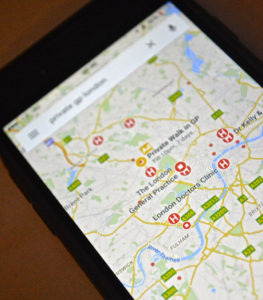A Geek's Guide to Building The Most Powerful Local Citations "The Citation Bible"

A Geek’s Guide to Building The Most Powerful Local Citations “The Citation Bible”
The most difficult part of building citations is making your business visible on the local search results. It takes only a few hours to get it right but doing it wrong will take you many hours and possibly a lot more in terms of money spent
But the worst of it all is that completely ignoring citations or building them ineffectively will translate to fewer clients for your business. As long as you have wrong citations, do not expect to appear in Google+ Local or anywhere in local search. It is not only a wasted time but also wasted opportunity. High quality and well-maintained citations are the foundations for a robust SEO campaign. Below is a geek’s guide to building the most perfect and powerful local citations to give you the best results from your citations.
- Don’t just pick anyone to build citations for you. It’s suicidal to pick any chap from Elance, UpWork or any other freelance sites. These are not the people you want to trust your business with. Remember that any mistakes these so called experts make are likely to cost you a lot in the long run. It might appear cheap but the reality is that it will be very expensive in the long run.
 Although Google is most definitely the king, you also need ensure that not only do you have correct but also complete listings in Yahoo Local, Apple Maps and Bing Places.
Although Google is most definitely the king, you also need ensure that not only do you have correct but also complete listings in Yahoo Local, Apple Maps and Bing Places.- Note that there are mainly 5 types of sites that you need to be listed on and these are:
- Horizontal directories (for instance Yelp)
- Data-aggregators (for instance LocalEze)
- Region-specific directories (for instance Avvo)
- Industry-specific (Denver.com/places)
- Sites in which you get “unstructured” citation, for instance a mention by a local blogger or in a newspaper
- Don’t mistake citations for links. Citations differ from links in that they are merely mentions of your address, name and phone number. These increase the relevance and prominence of your business in a city or a region. Although business listings do include a link to your site, just a few links manage to pass any PageRank. Citation itself is the real value.
- Stick to the rules of each website. These rules are usually enforced.
- Quality is better than quantity. In case you have wrongly constructed citations, try to correct as many of these cites as possible before you list your business on other websites. Note that the number of citations that you have are likely to grow naturally with time whether with or without your involvement. You will get more links naturally and easily if you take your time to first correct your current citations.
- Pay for listings. If you have determined that some sites are reputable and influential, and more so if some of your better-ranking competitors get to be listed on them, you can pay for these listings. Although there are free listings, you do not have to confine yourself entirely to them.
- Note that some listings cannot be delegated completely, as these require owner-verification through phone. The main ones are ExpressUpdate, Acxiom, YP and CityGrid. These are sites that you must be listed on. For them, you will need to personally do some steps.
- If you come across any duplicate listings or those that are close to being duplicate remove them fast.
- In case you come across a listing that has incorrect NAPW information that has been claimed by someone, make efforts to claim it after which you can fix it. If you are unable to do that, try getting it fixed. You can do this by sending feedback to the website as a non-business owner. In case that fails to work, come up with a new listing that has correct information about your business and make efforts to remove the incorrect one.
- Know that Yext isn’t an alternative to working manually on citations. Far from what people believe, Yext is not a citation cleanup service. It is a good tool for giving you the ability to instantly update listings on Yext’s network and it is perfect for enhancing the listings. It normally leaves inconsistent and duplicate citations on the websites. Another thing is that when you cease paying annually, most of the listings that it updated could go back to pre-Yext state. You still need to check each site manually for inconsistent and duplicate citations if you use Yext.
- Double-check to ensure that your address and name are compliant with guidelines of Google before building any citations. In case you find out later that you violated Google guidelines and need to change the items on your Google listing, you will not need to redo your citations.
- Keep backups of any worksheet you use for keeping track of your logins and citations. Have at least a copy stored on a different location apart from your local drive. Our expert geeks recommend storing your backups on the cloud. Ensure that you indicate date in the filename whenever you make changes. This enables you to know the latest copy.
- Keep tabs on all your login information for each site, especially if your logins info is kept differently from the worksheet just described above. Here also, safely keep your login data. You can use Google drive for this purpose.
- It is recommended to use an email account you wouldn’t have any qualms allowing another person to log into, in case you ever want assistance with your citations. This would be an email account from your domain, but you can use Gmail if that is not an option.
- The additional information (e.g. list of services, descriptions etc.) that you plan to use or you have used, should be saved. You can keep this in a Word document or Google drive or just about anywhere you think is safe.

- You need to seriously consider if you want to continue running online ads with Yellow Pages style, which normally use different call-tracking numbers. This is because when you get fat bills at the month-end, your friendly sales representatives can chest-thump and say “Last month we sent you 50 calls-precisely as we promised!” However, these reps are not telling you that the numbers can kill your business info consistency online, and also kill your rankings.
- In order to ensure that ZIP code you use for your citations match with the right city, make use of the USPS ZIP Code Lookup.
- Don’t submit a listing to a website before you double-check that you are not listed there already. In case you are listed and the listing appears not to be correct, just claim it and then fix it.
- When looking for incorrect citations, remember to hunt for your fax number. It is possible that you have some duplicate listings which have taken your fax number to be the key phone number. This could also be the case with your toll-free number in case you have one.
- Most companies have official business names with LLC, INC or other suffixes which is not part of their official DBA. Ensure that you your official name and that you look for listings under that particular name.
- One place you can search for your business name is Google MapMaker. It can often show you if there are duplicates. You can also scour MapMaker for your phone numbers.

- When checking a website to determine if you are listed, you don’t necessarily have to enter the full name of your business into the search box. In case you do this and in case the feature of the site is not very robust, you may not find listings if the name is not 100% correct. For instance, if the name of your business is “Acme Dynamite Co”, you can type just “Dynamite” or “Acme Dynamite” into the search box. This enables you to know that you are getting all variations of your name.
- Do not rely entirely on built-in search feature that each site has. Particularly if you have more than one DBA, you should check a specific site for your listings. You can do this though Googling your DBA as well as the directory site name. This can return listings that were not picked by the built-in search features of some sites. By use of a Google site search for a part of your corporation name or for your phone number, it could reveal listings that were not uncovered by onsite search.
- Search your phone number on Google. Does it return search results for other companies other than yours? Repeat this with your address and business name. You could find citations that require fixing.
- When entering your NAPW info (name, address, phone, website), you need to maintain a very high level of consistency although you don’t have to worry small formatting inconsistencies. You cannot avoid these and they do not necessarily affect your Google rankings. Just ensure consistency regarding what you give to the sites, but note that these may be split out in ways that are slightly different, which is perfectly OK.
- Begin off with main data providers or data aggregators. Generally, you should start your campaign to build citations with bigger and more important sites, and then work your way down to lesser known sites.
- With regard to data aggregators, the importance of Factual is growing. Ensure that your business is listed there. This is also a fantastic place to check for inconsistency of citations as it will indicate where your incorrect listings came from.
- Whenever possible, try to owner-verify or claim your listings. This is not because it helps your rankings because it won’t. Instead, you want to claim your listings because you will want to add extra information to your listing. Another reason is because it allows you to easily make changes, and more so later on.
- Take time when it comes to choosing categories. Do not skimp. Always choose as many pertinent categories as possible on each site. Not only does this help your visibility on these sites but it could also do a greater good to your Google+ Local rankings.
- Avoid using a forwarding URL. While this is allowed on many directory sites, it’s prohibited in Google+ Local. You certainly don’t want inconsistencies between URL used for Google listing and the one you use for your citations.
- Don’t hold back on the “additional details” (for instance keywords, photos, services etc.). This is because Google uses this third-party information when figuring out what your business is as well as what you offer, and it uses this information to rank you. You also need to know that on every site that you have citation, irrespective of how runty the site may seem, can represent a trace of customers. It pays to invest a little additional time to make the citations really count.
- While you could make use of the autofill tool, you still need to triple-check your information to ensure that it’s been correctly entered.
- If you have a couple of listings on a site and none of these has totally accurate NAPW information, begin by claiming one of these listings. The best thing is to try and reclaim the listing with the most accurate Name, Address, Phone, Website information. If all of the listings are in the same bad shape, choose the listing with highest number of reviews, or the one that appears highest when you search for the business name. Correct it 100% and then try to have those other ones removed.
- Be careful about typos, even when you have used an autofill tool. After entering your information into a website, read thoroughly and then double-check it.
- All your passwords should contain at least one capital letter and at least a numerical number. This needs to be done even for sites that do not necessarily require you to do so. The reason is that this allows you to use one password on all your sites. For instance, you should use a password like ABCxyz123 than simply abcxyz123 or abcxyz. The length should be a minimum 8 characters. While you need to carefully guard your password, you need not make it difficult even for you to recall.
- In case the NAPW information that appears publicly on your Google+/Google Places pages is formatted slightly differently from the information that you entered into your Google listing’s “dashboard”, you don’t have to change all your citation formatting so that thy conform to Google’s formatting. Let’s assume for instance that the information you put into your Google Plus/Places dashboard is “123 Main St.”, but Google shows this info publicly as “123 Main Street”. There is no need to modify your citations so that it reads Street rather than St. You need to know that Google is intelligent enough to tell that “Street” and “St” mean one and the same thing.
- If a site gives you fields for alternate fax and phone numbers, it is good to provide these details. This cannot mess up the consistency of your NAPW information.Pro tip from our Geeky Team: That alternate number should be added to Google Dashboard. This ensures that if there are any problems of this alternate number landing into the wrong hands, it will not dent your cluster.
- If you happen to be based at suite #, it is important that you are consistent in the way you enter the address when given 2 “address” fields and when given just one line in which to specify your address.
- Do not make the mistake of trying to do all the citations at the same time. You can do them either in waves or even work a couple of them every day. It might take up to 2 months for you to get listed on sites that really matter.
- However, you don’t have to worry over how fast you build citations. It is perfectly okay if you manage a few at once, and it’s also okay if you do them slowly over time. This does not have a bearing to your rankings.
- Keep track of your citations, as well as your competitors’. Whitespark has a good citation monitoring service with the Local Citation Finder that they have.
- Do not allow more than a couple of months to elapse before auditing your citations. This enables you to know the ones that still require fixing and the good ones. You may be surprised and what you find, even after putting in really hard work and sticking to the above best-practices. Also, do not just use free scans tools as these don’t always reveal the problems you may want fixed.
